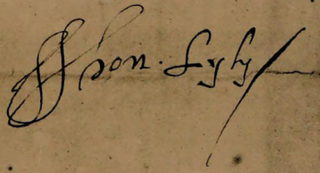A Quote by Stephenie Meyer
His voice was like honey and velvet. "Death, that hath sucked the honey of thy breath, hath had no power yet upon thy beauty," he murmured, and I recognized the line spoken by Romeo in the tomb.
Related Quotes
I here present thee with a hive of bees, laden some with wax, and some with honey. Fear not to approach! there are no wasps, there are no hornets here. If some wanton bee chance to buzz about thine ears, stand thy ground and hold thy hands-there's none will sting thee, if thou strike not first. If any do, she hath honey in her bag will cure thee too.
This day relenting God
Hath placed within my hand
A wondrous thing; and God
Be praised. At His command,
Seeking His secret deeds
With tears and toiling breath,
I find thy cunning seeds,
O million-murdering Death.
I know this little thing
A myriad men will save.
O Death, where is thy sting?
Thy victory, O Grave?
Poem he wrote following the discovery that the malaria parasite was carried by the amopheline mosquito.
Reviving Spring, a toast to thy fresh lips! Thy blush is music, and e'en heaven lurks In thy thick perfumed hair that hangs about Thy flowered shoulders like enchanted rain; Thy sigh is song and thy soft breath a balm, Dispelling death -- soft loosing his cold grip, Unravelling darkness in the heart of pain, As o'er dank waters rings the laugh of dawn.
Let honesty be as the breath of thy soul; then shalt thou reach the point of happiness, and independence shall be thy shield and buckler, thy helmet and crown; then shall thy soul walk upright, nor stoop to the silken wretch because he hath riches, nor pocket an abuse because the hand which offers it wears a ring set with diamonds.
As there is no worldly gain without some loss, so there is no worldly loss without some gain; if thou hast lost thy wealth, thou hast lost some trouble with it; if thou art degraded from thy honor, thou art likewise freed from the stroke of envy; if sickness hath blurred thy beauty, it hath delivered thee from pride. Set the allowance against the loss, and thou shalt find no loss great; he loses little or nothing, that reserves himself.
Let us look upon a crucified Christ, the remedy of all our miseries. His cross hath procured a crown, his passion hath expiated our transgression. His death hath disarmed the law, his blood hath washed a believer's soul. This death is the destruction of our enemies, the spring of our happiness, and the eternal testimony of divine love.
The lily I condemned for thy hand, And buds of marjoram had stol'n thy hair: The roses fearfully on thorns did stand, One blushing shame, another white despair; A third, nor red nor white, had stol'n of both And to his robbery had annex'd thy breath; But, for his theft, in pride of all his growth A vengeful canker eat him up to death. More flowers I noted, yet I none could see But sweet or colour it had stol'n from thee.
Golden Verses So-called because they are "good as gold." They are by some attributed to Epicarmos, and by others to Empedocles, but always go under the name of Pythagoras, and seem quite in accordance with the excellent precepts of that philosopher. They are as follows: Ne'er suffer sleep thine eyes to close Before thy mind hath run O'er every act, and thought, and word, From dawn to set of sun; For wrong take shame, but grateful feel If just thy course hath been; Such effort day by day renewed Will ward thy soul from sin. E. C. B.




































